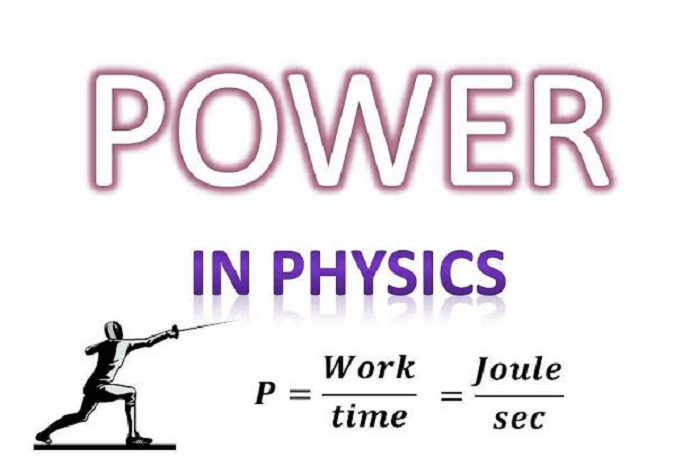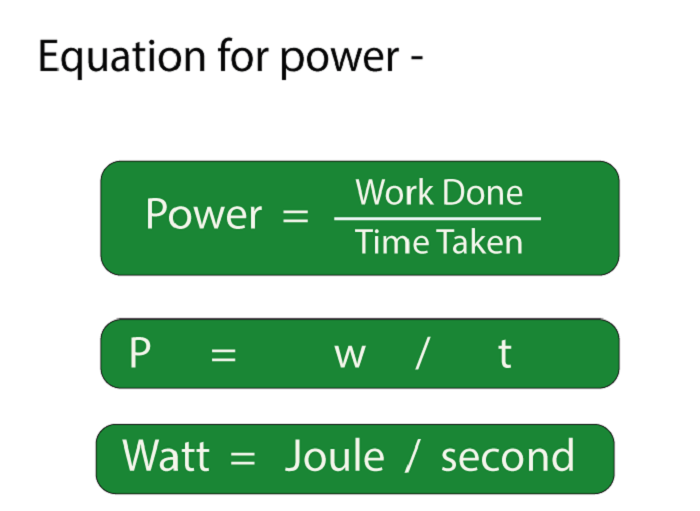Power DefinitionIn physics, Power is the duration rate at which the energy is transmitted or converted. The SI unit (or International System of Units) of Power is Watt (W). A watt equals one joule per second. Originally, Power used to be considered an activity. Power is defined as a scalar quantity. Because Power is always a mechanism of Work done, if a person works at a variable rate depending on the time of day, his Power will also fluctuate. At this moment, the notion of average Power comes into focus. What is Power?Power is a physical quantity that quantifies the rate of transfer of energy. It can therefore be described as the rate at which work is done on time. As a result, power is defined as the amount of energy consumption per second. 
Power can also be described as the force required to produce a unit displacement. 'P' represents Power, which is a scalar quantity. A light bulb with a higher power or wattage, such as 100 W, will illuminate lighter than a light bulb with a lower power or wattage, such as 10 W. As a result, more energy is lighted by the lamp, which consumes more Power. Formula of PowerWhen Power is defined as the time work rate done by an entity, the power formula can be used to calculate it as follows: P = W ⁄ t Where,

As a result, the above Power of relation is referred to as the work-time equation. The product of force and displacement is the product of Work done (W) by an object, and the power formula by force is as follows: If W = F × s Where,
Therefore, P = F × s ⁄ t Since the object's velocity, v = s / t Then, P = F × v As a result, the above relation can be stated as the force-velocity equation. Units of Power

Average PowerAverage Power is the ratio of total (net) Work done divided by the total time. As a result, average Power is described as Average Power = Total Work Done / Total Time Taken. Or Pav = ΔW / ΔT Where,
When the body's rate of work is uniform or constant, the average and instantaneous power are equal. Mechanical StrengthIn mechanical systems, Power is defined as the sum of forces and motion. In most cases, Power is calculated by multiplying a force acting on an object by its velocity or a torque acting on a shaft with its angular velocity. Another method to define mechanical Power is the time derivative of Work. As a result, mechanical Power is given by. Mechanical Power = Force × velocity Or Pm = F × v Electrical PowerElectric Power is the rate at which energy is transmitted from the electrical energy of moving charges to another form, expressed as a rate per unit of time. Electric Power is defined mathematically as the product of voltage and current flowing, which is represented as: P = V × I Ohm's Law states that. V = I × R, therefore: P = I2 × R Or P = V2 / R Where,
Power and Energy Consumption CalculationThis formula is applied to calculate Power and energy consumption. According to this, multiplying the power units consumed within the consumption period results in energy consumption. As a result, the energy consumption formula or power consumption is as follows: E = P × (t/1000) Where,
The amount of energy or Power consumed is often determined in Joules or Kilowatt-hours (kWh).
Next TopicPreeclampsia Definition
|
 For Videos Join Our Youtube Channel: Join Now
For Videos Join Our Youtube Channel: Join Now
Feedback
- Send your Feedback to [email protected]
Help Others, Please Share









